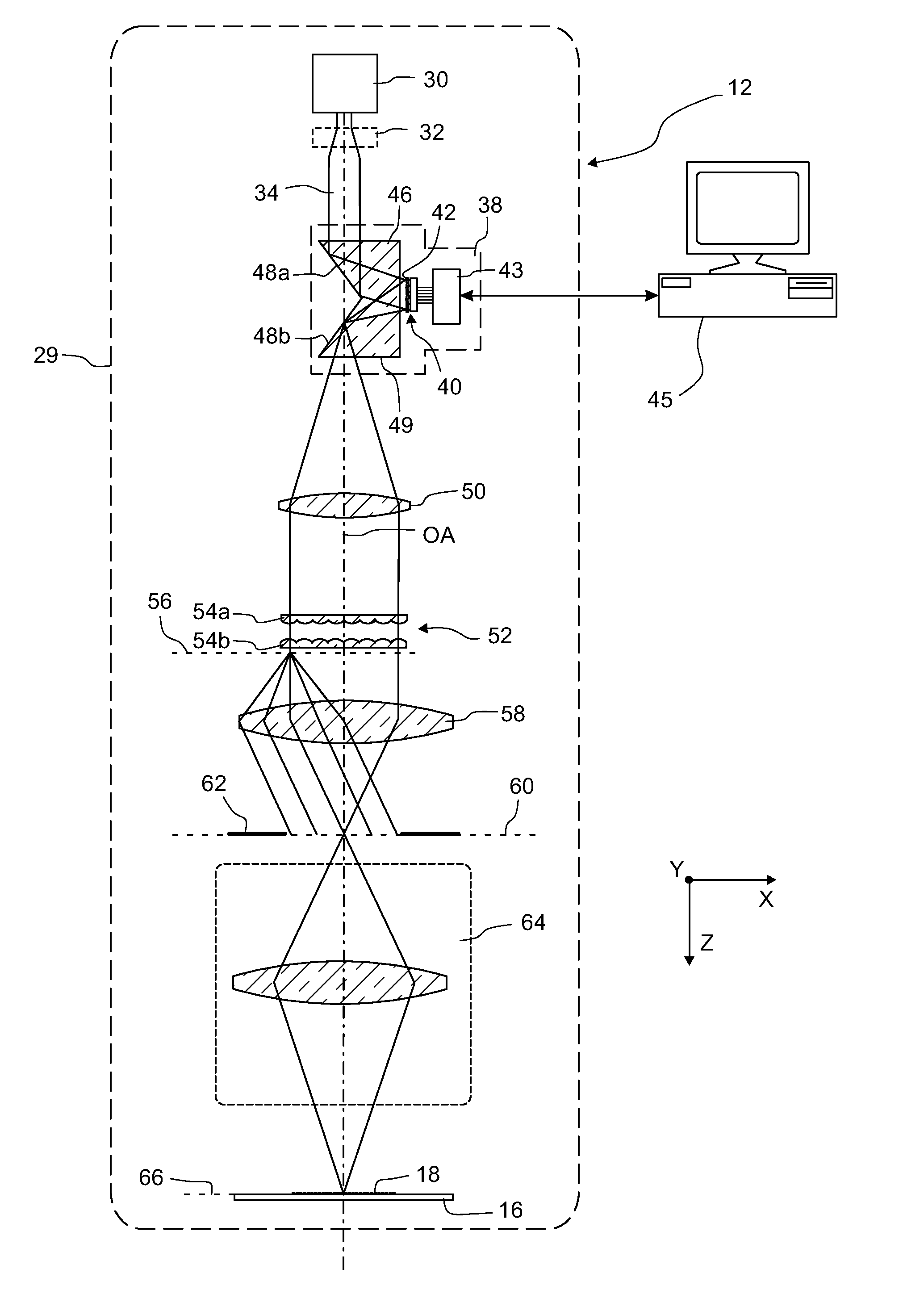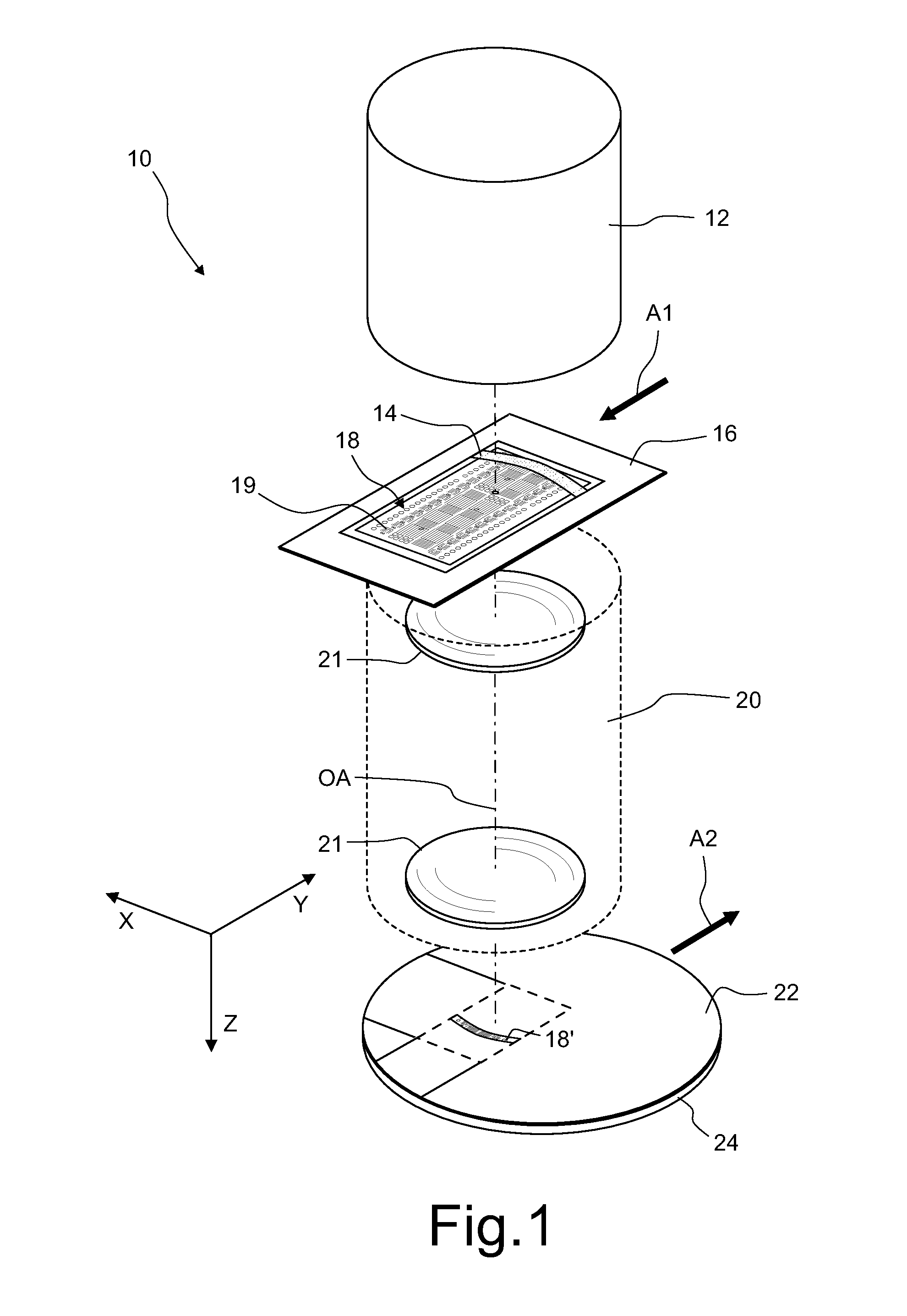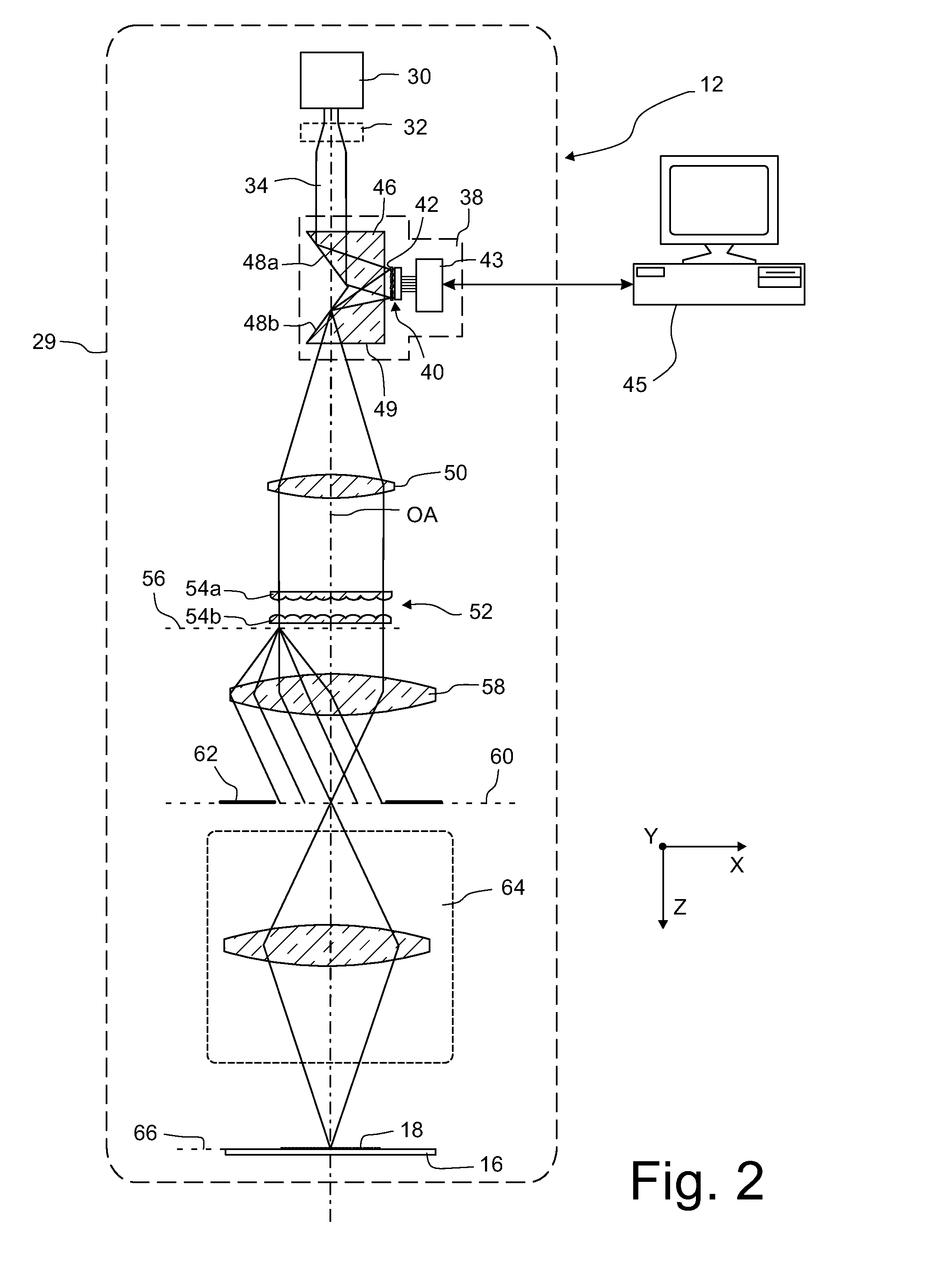Light modulator and illumination system of a microlithographic projection exposure apparatus
a technology of exposure apparatus and light modulator, which is applied in the direction of microlithography exposure apparatus, printers, instruments, etc., can solve the problems of adding to the complexity and cost of the illumination system, and achieve the effect of reducing the risk of significant heat generation of light and/or damaging the sensitive components that are arranged underneath the mirror
- Summary
- Abstract
- Description
- Claims
- Application Information
AI Technical Summary
Benefits of technology
Problems solved by technology
Method used
Image
Examples
first embodiment
[0070]FIG. 5 is a sectional view through a portion of the mirror array 40 according to a The mirror array 40 comprises a substrate 70 which supports a plurality of electronic components 72 which are not shown in detail, but only as a single circuit layer. The substrate 70 further supports a plurality of mirror units 74 each comprising one of the micromirrors 42 and those electronic components that are functionally associated with the micromirror 42. Each micromirror 42 comprises, in turn, a mirror substrate 76 and a reflective coating 78 applied thereon and consisting, for example, of a plurality of thin layers having alternate refractive indices.
[0071]Each mirror unit 74 further comprises a base 80 which supports two solid state joint members 82, 84 which enable the micromirrors 42 to tilt around two orthogonal tilt axes that are defined by the configuration of the solid state joint members 82, 84. Also included in each mirror unit 74 is a plurality of actuators 86, 88 that are co...
second embodiment
[0076]FIG. 6 is a sectional view through a portion of a mirror array 240 according to a In this embodiment the absorber elements 94 are not attached to the substrate 70, the actuators 86, 88 or the electronic components that are supported by the substrate 70, but are attached to edges 98 of the micromirror substrates 76. The absorber elements 94 have an angled cross-section which is determined such that the micromirrors 42 are still allowed to freely tilt, together with the absorber elements 94, around the two tilt axes without getting in contact with an adjacent micromirror. Attaching the absorber elements 94 to the micromirror substrates 76 has the advantage that no projection light at all is allowed to penetrate into the gaps 90. Therefore heat, which is produced by absorption of the projection light in the absorber elements, is kept away from the sensible electronic components 72 and the actuators 86, 88 and can be more easily removed from the mirror array 240 by a gas flowing ...
third embodiment
[0078]In the third embodiment shown in FIG. 7 the mirror array 340 comprises absorber elements 94 that are arranged on ridges 100 that stand erect from the substrate 70 between the micromirrors 42. The effect is similar to the absorber elements 94 of the mirror array 240 shown in FIG. 6.
PUM
 Login to View More
Login to View More Abstract
Description
Claims
Application Information
 Login to View More
Login to View More - R&D
- Intellectual Property
- Life Sciences
- Materials
- Tech Scout
- Unparalleled Data Quality
- Higher Quality Content
- 60% Fewer Hallucinations
Browse by: Latest US Patents, China's latest patents, Technical Efficacy Thesaurus, Application Domain, Technology Topic, Popular Technical Reports.
© 2025 PatSnap. All rights reserved.Legal|Privacy policy|Modern Slavery Act Transparency Statement|Sitemap|About US| Contact US: help@patsnap.com



